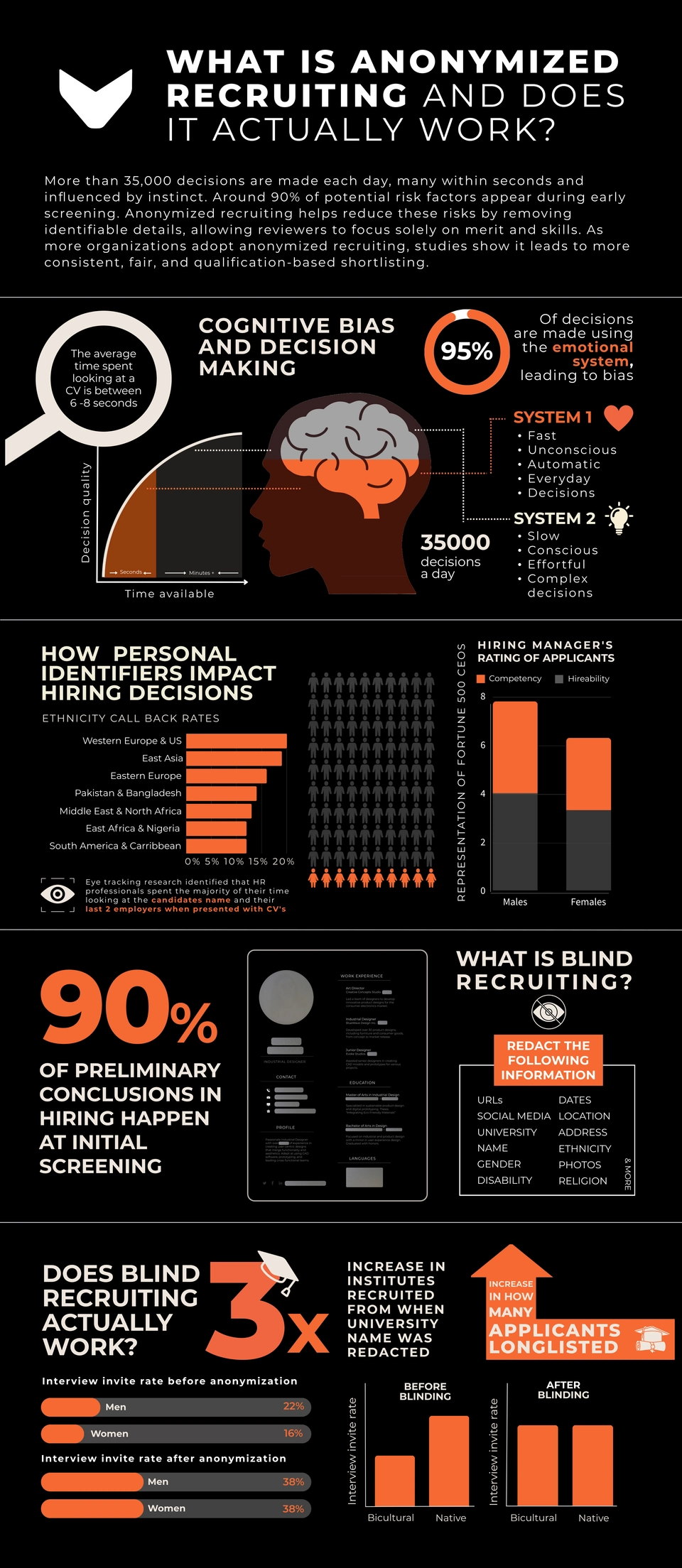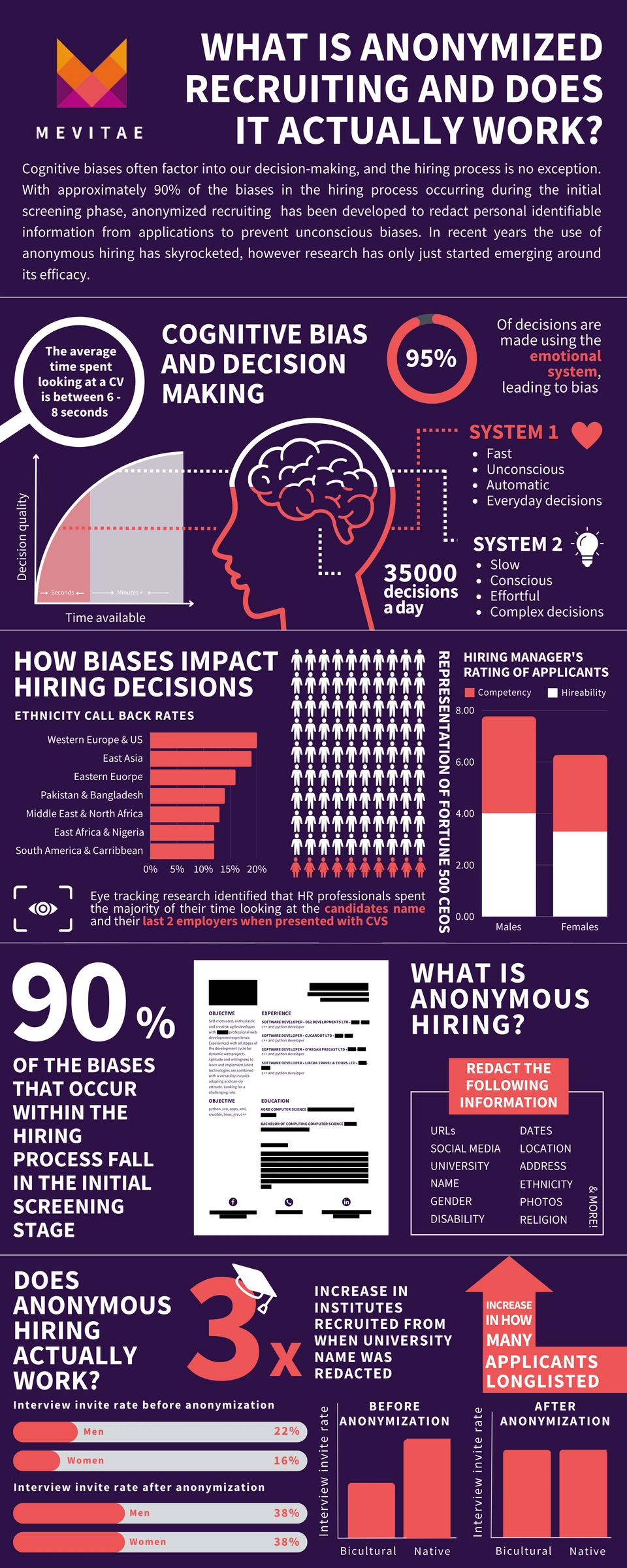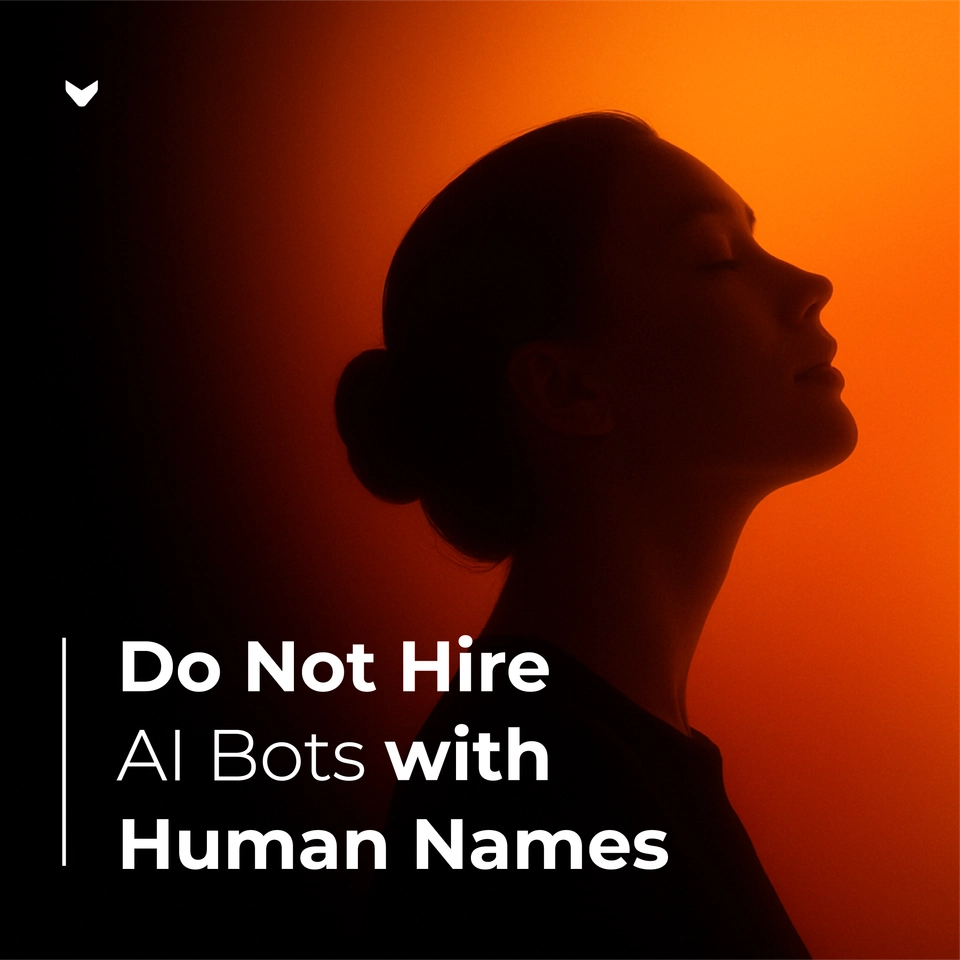What is anonymized recruiting?
Infographic
Cognitive biases play a significant role in shaping our decisions, and this holds true even in the hiring process. Surprisingly, around 90% of biases occur during the longlisting phase, potentially compromising the fairness and inclusivity of candidate evaluations. To combat this issue, the innovative practice of anonymised recruiting has emerged, strategically redacting personal identifiable information from applications to mitigate biases.

Previous Versions
What is anonymised recruiting and does it actually work? (2024)

History
Transform Your Hiring with Blind Recruiting Today!
Join the ranks of forward-thinking companies that are already ahead of the curve by adopting anonymized recruiting practices.
